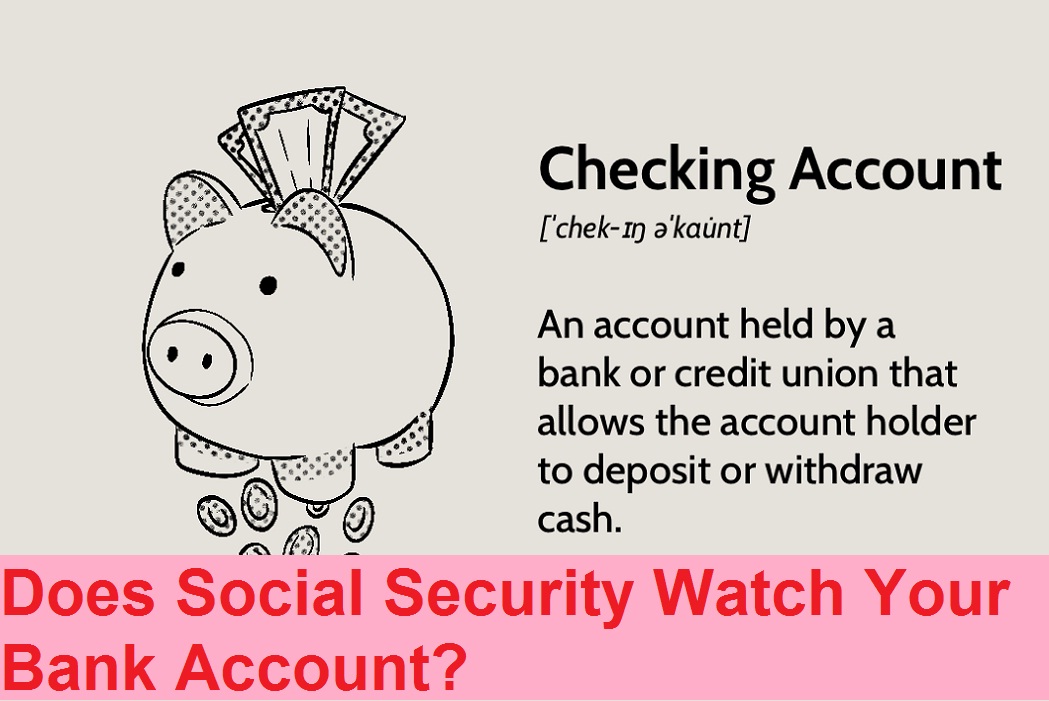Contents
- 1 Does Social Security Watch Your Bank Account?
- 1.1 How Does Social Security Work?
- 1.2 Does Social Security Have Access to Your Bank Account?
- 1.3 FAQs: Does Social Security Watch Your Bank Account?
- 1.3.1 1. Does Social Security receive information about my bank account automatically?
- 1.3.2 2. Can Social Security freeze or seize funds in my bank account?
- 1.3.3 3. How can Social Security access my bank account information?
- 1.3.4 4. What types of transactions are reported to the government?
- 1.3.5 5. Can Social Security track my everyday spending habits?
- 1.3.6 6. Is my Social Security number linked to my bank account?
- 1.3.7 Share this:
- 1.3.8 Like this:
- 1.3.9 Related
Does Social Security Watch Your Bank Account?
In today’s digital age, where personal information is increasingly at risk, it’s only natural to wonder about the extent to which organizations and institutions monitor our financial activities. Social Security, a government program that provides financial support to eligible individuals, is no exception. One question that often arises is, “Does Social Security watch your bank account?” In this article, we will delve into this topic and shed light on the realities and myths surrounding Social Security’s monitoring practices. So, let’s dig in and find out the truth!
How Does Social Security Work?
Before we address the question at hand, let’s take a moment to understand the basics of how Social Security works. Established in 1935, Social Security is a federal program in the United States that primarily provides retirement, disability, and survivor benefits. Workers and employers contribute to the Social Security system through payroll taxes, and these contributions are used to fund the benefits received by eligible individuals.
Does Social Security Have Access to Your Bank Account?
One common misconception is that Social Security has direct access to individuals’ bank accounts. However, this is not entirely accurate. Social Security does not actively monitor or have direct access to your personal bank account. The program does not have the authority to randomly scrutinize your financial transactions or view your account balance.
However, it is essential to note that financial institutions, including banks, are required by law to report certain transactions to the government. This reporting is part of anti-money laundering efforts and is intended to detect and prevent illicit activities such as fraud and terrorism financing. Social Security, like other government agencies, may access these reports when necessary for legitimate purposes.
In conclusion, the notion that Social Security actively watches your bank account is largely a misconception. While the program does have mechanisms in place to access financial information when necessary, it does not have direct and unrestricted access to individuals’ bank accounts. Financial institutions are required to report certain transactions to the government, including Social Security, to prevent financial crimes. However, this reporting does not entail ongoing monitoring of individual accounts by Social Security.
Understanding the facts about Social Security and bank account monitoring can help alleviate concerns and provide clarity regarding the program’s role in safeguarding your financial well-being.So, rest assured, your everyday financial activities are not under constant scrutiny by Social Security. Instead, the focus remains on providing support and benefits to eligible individuals as intended by the program’s mission.
FAQs: Does Social Security Watch Your Bank Account?
To provide a comprehensive understanding of the topic, let’s address some frequently asked questions regarding Social Security and bank account monitoring:
1. Does Social Security receive information about my bank account automatically?
No, Social Security does not automatically receive information about your bank account. As mentioned earlier, financial institutions are required to report specific transactions to the government, but this does not involve automatically sharing your account details with Social Security.
2. Can Social Security freeze or seize funds in my bank account?
Social Security does have the authority to freeze or seize funds in your bank account under certain circumstances. This typically happens when there is an over payment or debt owed to the Social Security Administration. However, there are legal processes and protections in place to ensure due process and protect individuals’ rights.
3. How can Social Security access my bank account information?
Social Security can access your bank account information, but it requires legal procedures and appropriate authorization. If there is a legitimate need to access your financial records, such as investigating suspected fraud, the Social Security Administration can request the information from financial institutions with the necessary legal documentation.
4. What types of transactions are reported to the government?
Financial institutions are required to report transactions such as cash deposits exceeding a certain threshold, large cash withdrawals, and suspicious activities that may indicate money laundering or other illicit activities. It is important to understand that these reports are not specific to Social Security but are part of broader efforts to combat financial crimes.
5. Can Social Security track my everyday spending habits?
No, Social Security does not actively track your everyday spending habits or monitor individual transactions. The program’s focus is primarily on administering benefits and ensuring compliance with the eligibility criteria. Everyday spending activities fall outside the purview of Social Security’s monitoring.
6. Is my Social Security number linked to my bank account?
Your Social Security number is not directly linked to your bank account. While your Social Security number is a unique identifier used for various purposes, including taxation and government benefit programs, it does not serve as a direct link between your bank account and Social Security.

